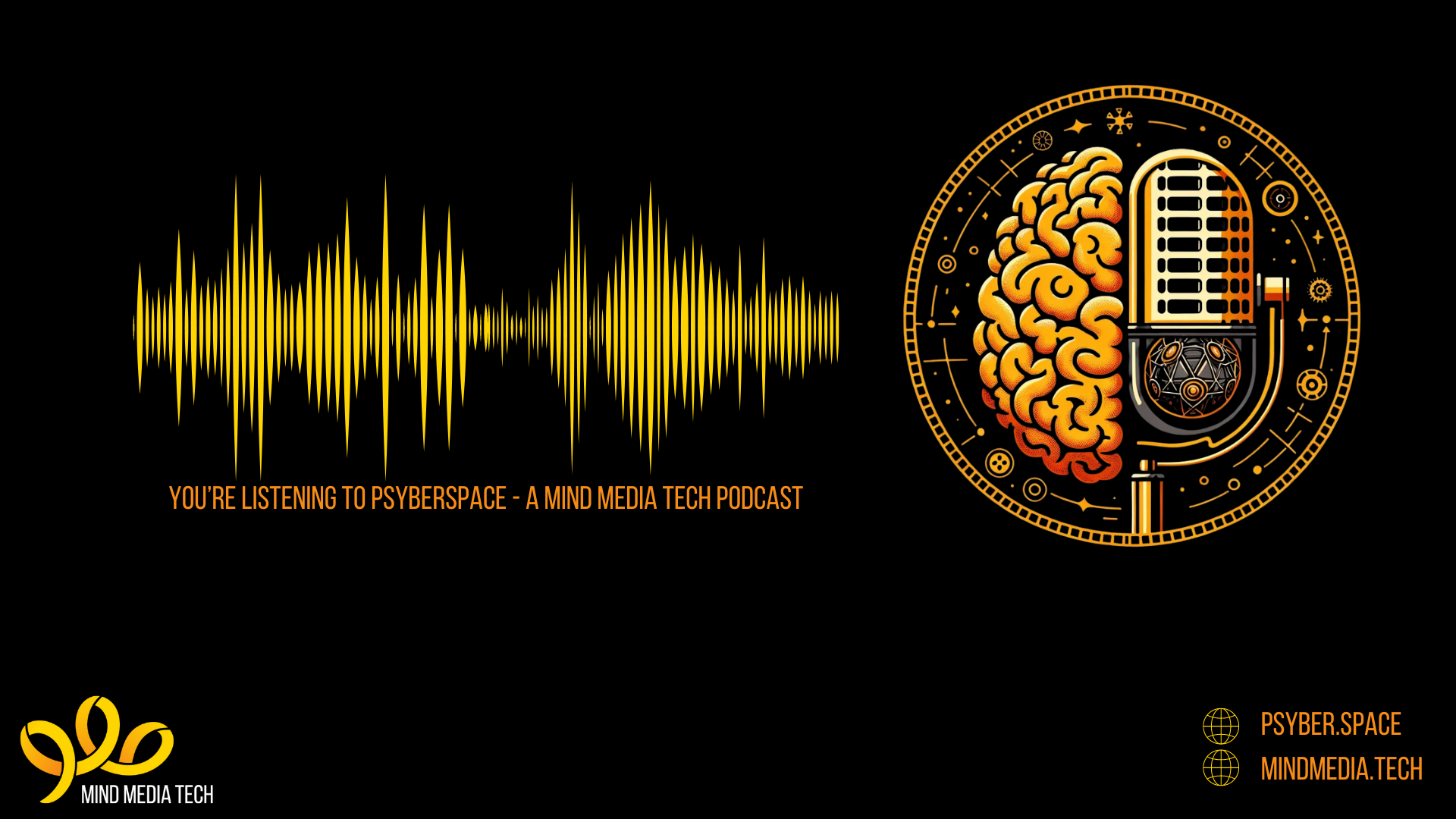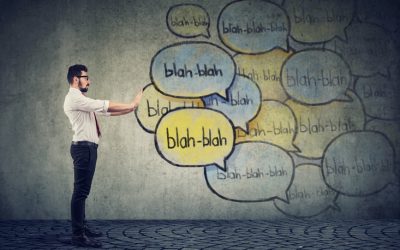This episode of Psyber.Space, hosted by Leslie Poston, looked into the profound impact of music on the brain, exploring how it boosts cognitive function, aids in neurological therapy, and enhances overall brain health. Notable insights include the work of neurologist Oliver Sacks, the concept of the Mozart Effect, and the therapeutic uses of music for conditions such as ADHD and dementia. The discussion also highlights various neuropsychology and psychological studies and expert opinions on the subject, offering listeners practical ways to incorporate music into their lives for mental and emotional well-being.
00:00 Introduction to Music and the Brain
00:40 Music’s Therapeutic Roles
01:13 Cognitive Benefits in Healthy Individuals
02:11 Music’s Effects Across Different Genres
02:52 Mechanisms Behind Music’s Power
03:28 Long-term Cognitive Benefits of Playing Music
03:52 Music and Brain Rehabilitation
04:17 Music in Teams and Workplaces
04:50 Music’s Promise in Treating Disorders
06:34 The OPERA Hypothesis and Neurologic Music Therapy
07:50 Practical Tips for Using Music to Boost Brain Health
08:30 Conclusions and Final Thoughts
Research referenced in this episode:
- Baird, A., & Thompson, W. F. (2018). The impact of music on the self in dementia. Journal of Alzheimer’s Disease, 61(3), 827-841. https://doi.org/10.3233/JAD-170737
- Biasutti, M., Mangiacotti, A., & Raccanello, D. (2021). Efficacy of music therapy for anxiety reduction in women with breast cancer: A randomized controlled trial. Clinical Psychology & Psychotherapy, 28(3), 753-764. https://doi.org/10.1002/cpp.2525
- Daniel, A., Koumans, H., & Ganti, L. (2021) Impact of music therapy on gait after stroke. Cureus. 13(10) https://10.7759/cureus.18441
- Elefant, C., Baker, F. A., Lotan, M., Lagesen, S. K., & Skeie, G. O. (2012). Music-based interventions for Parkinson’s disease: a systematic review of the literature. Psicologia: Reflexão e Crítica, 25(4), 810-816. https://doi.org/10.1590/S0102-79722012000400018
- Fancourt, D., & Finn, S. (2019). What is the evidence on the role of the arts in improving health and well-being? A scoping review. Health Evidence Network (HEN) Synthesis Report 67. WHO Regional Office for Europe. https://www.euro.who.int/\_\_data/assets/pdf\_file/0007/418418/What-is-the-evidence-on-the-role-of-the-arts.pdf
- Hanna-Pladdy, B. & MacKay, A. (2011) The relation between instrumental musical activity and cognitive aging. Neuropsychology. https://10.1037/a0021895
- Jourdain, R. (2002). Music, the brain, and ecstasy: How music captures our imagination. Harper Perennial. ISBN-10 038078209X
- Lesiuk, T. (2005). The effect of music listening on work performance. Psychology of Music, 33(2), 173-191. https://doi.org/10.1177/0305735605050650
- Levitin, D. J., & Tirovolas, A. K. (2009). Current advances in the cognitive neuroscience of music. Annals of the New York Academy of Sciences, 1156(1), 211-231. https://doi.org/10.1111/j.1749-6632.2009.04417.x
- Mao, N. (2022) The Role of Music Therapy in the Emotional Regulation and Psychological Stress Relief of Employees in the Workplace. Journal of Healthcare Engineering. https://doi.org/10.1155/2022/4260904
- Patel, A. D. (2011). Why would musical training benefit the neural encoding of speech? The OPERA hypothesis. Frontiers in Psychology, 2, 142. https://doi.org/10.3389/fpsyg.2011.00142
- Raglio, A., Bellandi, D., Baiardi, P., Gianotti, M., Ubezio, M. C., Zanacchi, E., & Stramba-Badiale, M. (2020). Effect of active music therapy and individualized listening to music on dementia: A multicenter randomized controlled trial. Journal of the American Geriatrics Society, 68(7), 1474-1482. https://doi.org/10.1111/jgs.16549
- Raglio, A., Filippi, S., Bellandi, D., & Stramba-Badiale, M. (2014). Music therapy and dementia: A review of literature and the recommendations of the Italian Psychogeriatric Association. Maturitas, 78(2), 85-92. https://doi.org/10.1016/j.maturitas.2014.03.016
- Sachs, M. E., Ellis, R. J., Schlaug, G., & Loui, P. (2021). Brain connectivity reflects human aesthetic responses to music. Brain Sciences, 11(6), 787. https://10.1093/scan/nsw009
- Sacks, O. (2006). The power of music. Brain, 129(10), 2528-2532. https://doi.org/10.1093/brain/awl234
- Sanseverino D, Caputo A, Cortese CG, Ghislieri C. (2022) “Don’t Stop the Music,” Please: The Relationship between Music Use at Work, Satisfaction, and Performance. Behavioral Sciences. https://doi.org/10.3390/bs13010015
- Särkämö, T., Laitinen, S., Numminen, A., Kurki, M., Johnson, J. K., & Rantanen, P. (2020). Clinical and demographic factors associated with the cognitive and emotional efficacy of regular musical activities in dementia. Journal of Alzheimer’s Disease, 73(1), 147-162. https://doi.org/10.3233/JAD-190683
- Shek, D. T. L., & Schubert, E. (2009). The effect of background music on the cognitive performance of musicians: A pilot study. Psychology of Music, 37(1), 74-84. https://doi.org/10.1177/0305735608097247
- Thaut, M. H., Gardiner, J. C., Holmberg, D., Horwitz, J., Kent, L., Andrews, G., … & McIntosh, G. R. (2009). Neurologic music therapy improves executive function and emotional adjustment in traumatic brain injury rehabilitation. Annals of the New York Academy of Sciences, 1169(1), 406-416. https://doi.org/10.1111/j.1749-6632.2009.04585.x
- Thaut, M. H., Peterson, D. A., & McIntosh, G. C. (2015). Music and Brain Circuitry: A Review of How Music Improves Brain Function and Neural Health Across the Lifespan. Journal of Neuroscience, 35(49), 16283-16294. https://doi.org/10.1523/JNEUROSCI.2669-15.2015
- Thompson, W. F., Schellenberg, E. G., & Husain, G. (2001). Arousal, mood, and the Mozart effect. Psychological Science, 12(3), 248–251. https://doi.org/10.1111/1467-9280.00345
- Threadgold, E., Marsh, J. E., & Ball, L. J. (2019). Background music stints creativity: Evidence from compound remote associate tasks. Applied Cognitive Psychology, 33(5), 873-888. https://doi.org/10.1002/acp.3532
- Wang, X., Soshi, T., Yamashita, M., Kikihara, M., Tsutsumi, T., Iwasaki, S., & Sekiyama, K. (2023) Effects of a 10-week musical instrument training on cognitive function in healthy older adults: implications for desirable tests and period of training. Frontiers in Aging Neuroscience. https://doi.org/10.3389/fnagi.2023.1180259
- Zendel, B. R., & Alexander, E.J.. (2020). Autodidactism and Music: Do Self-Taught Musicians Exhibit the Same Auditory Processing Advantages as Formally Trained Musicians. Frontiers in Neuroscience, Vol 14. https://doi.org/10.3389/fnins.2020.00752
- Zhang, Y., Cai, J., An, L., Hui, F., Ren, T., Ma, H., & Zhao, Q. (2020). Does music therapy enhance behavioral and cognitive function in elderly dementia patients? A systematic review and meta-analysis. Ageing Research Reviews, 55, 100916. https://doi.org/10.1016/j.arr.2020.100916













0 Comments